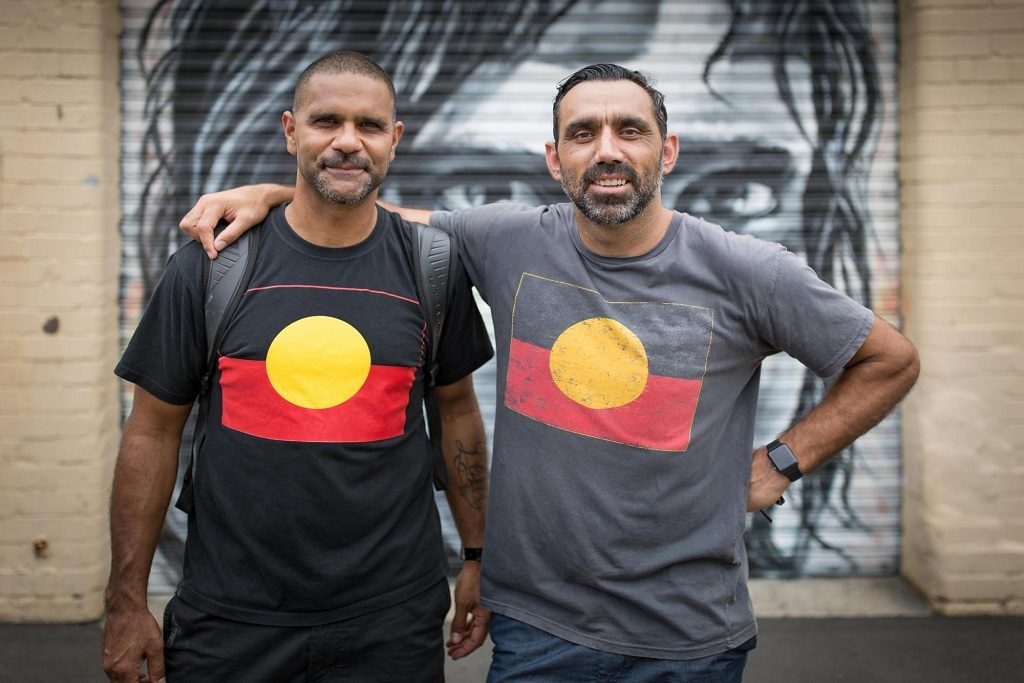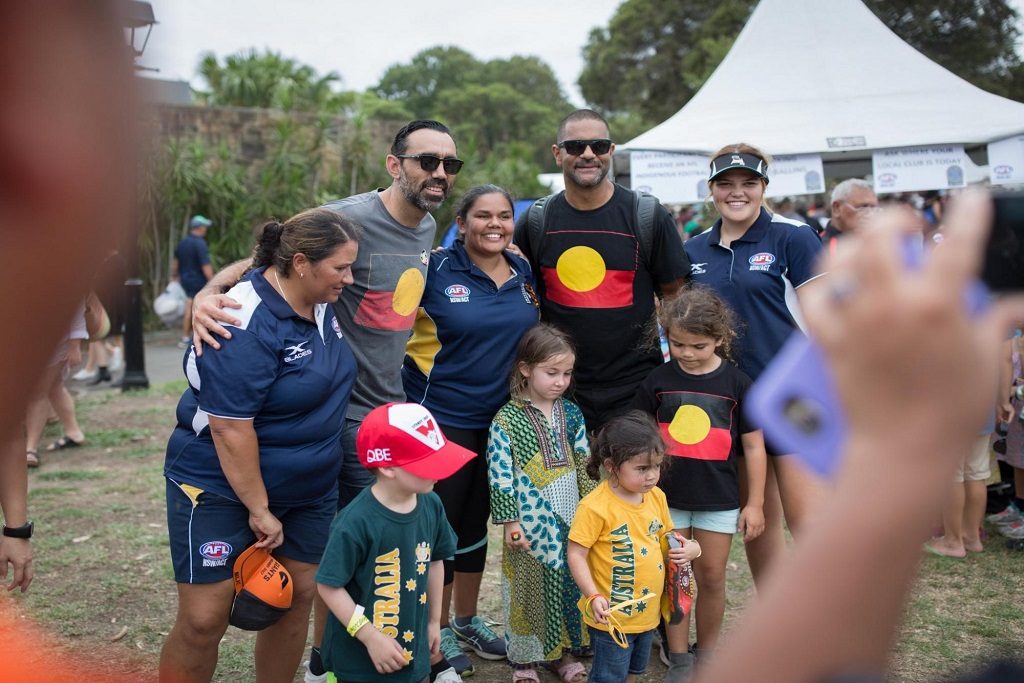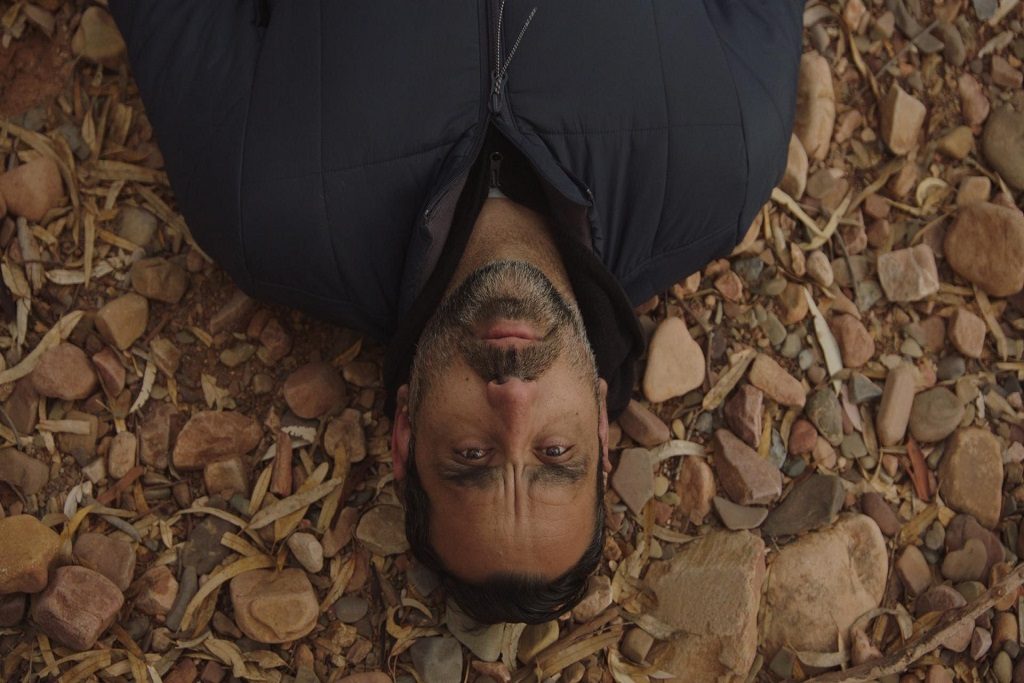
Prior to seeing The Australian Dream, AFL was a sport I had next to no interest in and the name Adam Goodes, though more specifically the racial-fuelled incident that he became synonymous with, was one only vaguely familiar. I had no expectations nor much enthusiasm for this documentary, so finding myself utterly immersed and emotionally invested was a surprise.
As a gay man in an interracial relationship there were elements of the racial slurs and derogatory comments at the centre of this documentary that resonated with me (which perhaps further fuelled my emotional connection to the story), though the vivid articulation of racial trauma experienced by Indigenous Australians at the hands, or more correctly the mouths, of everyday Australians is something I could never personally relate to, but such is the power of Daniel Gordon’s The Australian Dream that only the most closed-minded human would fail to empathise with the film’s subject.
So much more than just a documentary outlining an incident of abuse, The Australian Dream places a mirror against Australia’s own history of burning racism and forces us to address it in a manner that can’t easily be avoided; footage of people enjoying the activities of Australia Day plays to the audio of Goodes commenting it’s “the worst day of the year”, detailing how the Australian Constitution fails to acknowledge Indigenous people as the country’s rightful landowners.

An AFL great and former Australian of the Year, Goodes’ own combatting against racism was an action instilled in him long before the infamous 2013 incident that the film utilises as its centrepiece. His dedication to The Sydney Swans should’ve almost earned him immunity against the naysayers due to his sheer tenacity as a player, but talent and bravery aren’t enough of a shield from bigotry, and it was the racial cry of being called “an ape” that set off a chain events that arguably have defined him more than his sporting accomplishments.
The slur was enough for Goodes to personally react, commanding security to remove the spectator in question – which just so happened to be a 13-year-old girl. As he commented himself, had the insult been flung from the mouth of a drunken, twenty-something white male, it wouldn’t have caused nearly as much commotion, but attacking a young girl was enough for the sportsman to be dubbed a public enemy. Owning up to his own mistakes of singling the young girl out, Goodes both encouraged the Australian public to support her and offered his own hand to make peace, seeking a way to educate this young girl in the process.

It was the following year that he would be awarded Australian of the Year, but leading up to the event proved taxing as he was constantly booed at subsequent matches and was vilified online via hateful comments, as well as suffering through public condemnation and humiliation with professional sports commentators such as Andrew Bolt, Eddie Maguire (who even appears in several of the film’s interview segments) and Sam Newman all calling him out, in some form or another, for being a “sook”.
Gordon and writer Stan Grant, who similarly recalls his own experiences of first-hand racism throughout, are not trying to attack the white-skinned audience who may be guilty of “casual racism” with this brutal, affecting, but hopeful doco, more they are stressing the importance of words and the choice to use them; “It makes us feel like shit” Goodes so bluntly notes. There’s a saddening displacement within Goodes that stems from being bullied out of a game he loves because he dared to remind his detractors that he’s a person of value.
4 stars
About The Australian Dream
The Australian Dream is a theatrical feature documentary that uses the remarkable and inspirational story of AFL legend Adam Goodes as the prism through which to tell a deeper and more powerful story about race, identity and belonging.
The Australian Dream (MA15+) is screening in Australian theatres from August 22nd 2019.
Leave a Reply